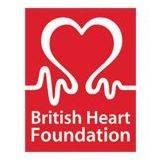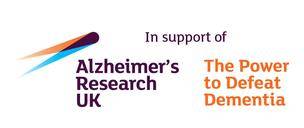Editor - Paul Denny
Highlights over the last three months include our first publication and the continual evolution of our priority gene lists. Ruth's work with Claudia Manzoni, from the UCL Institute of Neurology, on the analysis of GO term enrichment for proteins interacting with the key Parkinson's protein, LRRK2, was published (PMID: 25737818). Rebecca's discussions with a colleague from the Centre for Therapeutic Target Validation (CTTV) prompted us to add 8 new genes to our high-priority list.
Gene Annotation
One of our main areas of focus is on annotating human proteins involved in the biological processes that are disregulated in Parkinson's Disease (PD). We start by reading recent authoritative reviews of a topic, e.g. "Activation of the unfolded protein response in Parkinson's disease" by Hoozemans and colleagues (PMID:17254549), in order to choose relevant genes and identify the best papers. We then work through the annotation of the experimental papers. We have recently finished working on endoplasmic reticulum stress, the unfolded protein response and mitophagy, generating around 200, 60 and 180 GO annotations associated with 100, 40 and 160 proteins, respectively.
Studies using model organisms contribute enormously to our understanding of human biology and Parkinson's disease, so it is important for us to annotate this data, if the corresponding human studies have not been conducted. We choose human orthologs using the HUGO Gene Nomenclature Committee's website tool and then transfer annotations with the European Bioinformatics Institute (EBI) annotation tool, Protein2GO. The orthologous human protein is annotated only if it is not included in the automated Ensembl COMPARA pipeline. This has allowed us to transfer 308 annotations to 80 human proteins, so far. Based on the EBI statistics, (March 28th 2015), Ruth, Rebecca and Paul have associated 3506 GO terms to 876 proteins, including 557 human proteins.
Gene Ontology
When we notice aspects of biology that are not represented in the ontology, we suggest possible new terms that describe the relevant process, molecular function or cellular component. This usually leads to a discussion with the GO Consortium editors and either creation of the new term or suggestions of existing terms. For example, chaperone-mediated autophagy (CMA) is known to be dis-regulated in PD, yet there was no GO term for this biological process. This omission has been corrected (GO:0061684) and means that since the beginning of the project, we have created 201 new terms.
Community engagement
At the end of March, we had an opportunity to explain our work to a small group from Parkinson's UK, including people with Parkinson's, members of the society and grant officers. In a very enjoyable afternoon, we discussed our project, the importance of GO annotation for integrating the literature and analysis of high-throughput data and our progress so far.
Meetings Attended
In February we had one of our regular meetings with collaborators at the EBI at Hinxton near Cambridge, UK. We discussed, with Tony Sawford the GO annotation software engineer, uploading proteomic and imaging data using the online tool, Protein2GO, leading to efficiency improvements.
Upcoming events
In June, Paul will be presenting our work on a poster at the annual UCL Neuroscience Symposium. Rebecca is attending a lecture at Fitzwilliam College, Cambridge on April 14th, on the topic of repurposing drugs for Parkinson's disease.
Please contact us to receive this quarterly Newsletter by email
 Close
Close








